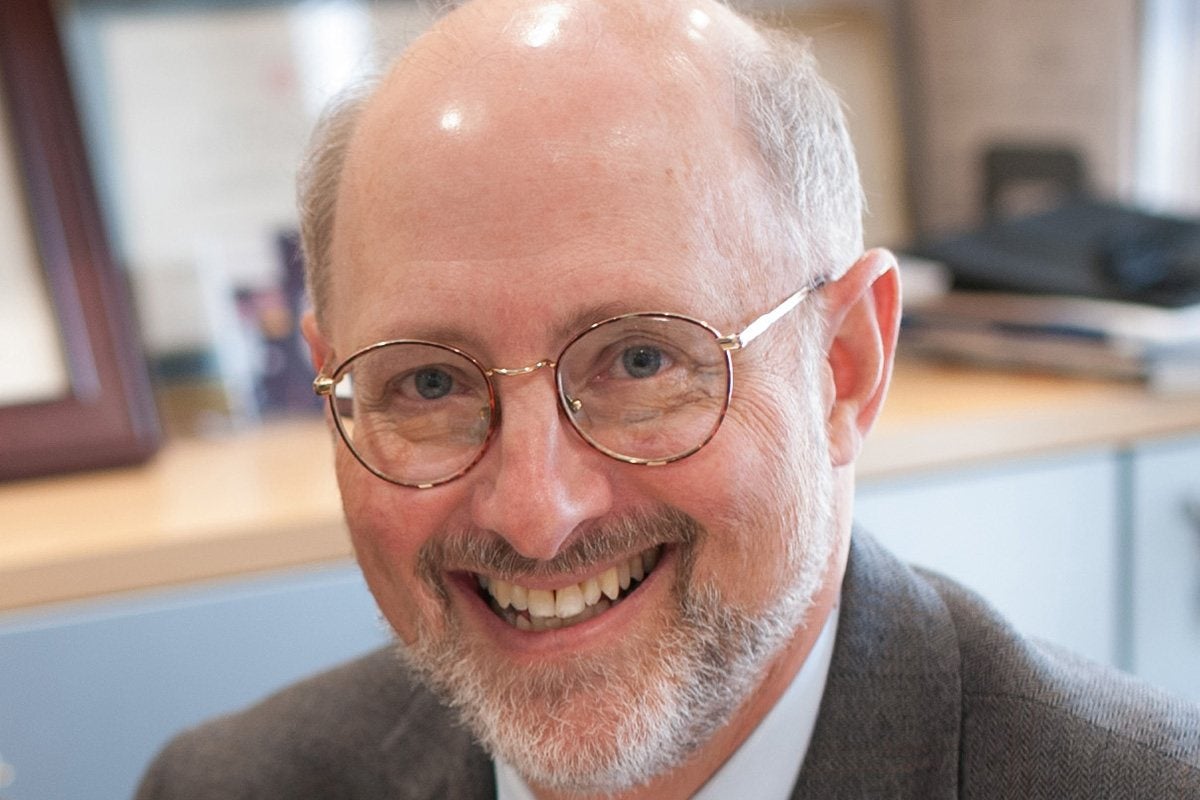In memoriam: George Seage, leader in HIV research

January 4, 2021
Dear Harvard Chan School community,
It is with great sadness that I write to inform you of the passing of a beloved member of our faculty, George R. Seage III, professor of epidemiology. George was a valued member of our Department of Epidemiology since 1999. He passed away on January 2, 2021.
George was a leader in the field of HIV research, and he was particularly well known for his work on behavioral aspects of HIV transmission and in investigating effects of antiretroviral therapy on the long-term health of children with perinatal HIV infection and HIV exposure. He played a key role in the earliest efforts to understand HIV and AIDS, bringing epidemiologic skills and expertise to the forefront of HIV and AIDS research. During the early years of the HIV epidemic, George served as the first director of the Massachusetts AIDS Surveillance Program, focusing on the behavioral and biological aspects of adult and pediatric HIV transmission, natural history, and treatment. He provided critical leadership to the Boston Partners Study, Boston Young Men’s Study, the HIVNET Vaccine Preparedness Study, and the Pediatric AIDS Clinical Trials Group 219C study.
George attended SUNY at Stony Brook (New York), graduating with a BS in biology. He went on to attend Boston University School of Public Health, where he graduated with an MPH in environmental health in 1983 and a DSc in epidemiology in 1991. During his MPH program, he worked as a research assistant in the Department of Epidemiology at Harvard Chan School, where he met his future wife, Ann Aschengrau, now professor of epidemiology at Boston University School of Public Health. George and Ann shared their love of epidemiology in many ways, including co-authoring the best-selling textbook “Essentials of Epidemiology in Public Health.” George joined the Harvard Chan faculty as associate professor in 1999 and was promoted to professor of epidemiology in 2012.
For the last 15 years, George was principal investigator of the Pediatric HIV/AIDS Cohort Study (PHACS) Data and Operations Center based at the School. His leadership on PHACS has led to increased understanding of the long-term impact and safety of in-utero antiretroviral and HIV exposure in infants. This knowledge has improved care and antiretroviral drug safety guidelines for children, young adults, and families all over the world. In fall 2019, George led his team’s effort to write a grant that reenvisioned the next five years of PHACS, which was funded by nine institutes of the National Institutes of Health in September 2020. His research team is inspired and grateful to have the clarity and purpose of George’s vision at the center of their work on PHACS.
George also took great joy in and was dedicated to mentoring the next generation of infectious disease epidemiology scholars. To that end, he helped craft a program to mentor early career investigators in PHACS, and he was also the co-principal investigator of a T32 graduate training program in the epidemiology of infectious diseases and biodefense and director of the Interdisciplinary Program in Infectious Disease Epidemiology at the School.
With over 200 publications in major scientific journals, George made immense contributions to our understanding of HIV transmission and prevention and disease consequences, translating the science into sound public health policy at the federal, state, and local levels. In recognition of these achievements, he was inducted into the Massapequa (Long Island) High Schools Hall of Fame and received the Massachusetts Governor’s Award for Outstanding Contributions to AIDS Research, the Fenway Community Health Center Research Award, and the Boston University SPH Alumni Award. However, his proudest accomplishments were creating a nurturing environment for his research team, mentoring the next generation of HIV scholars, providing relief supplies to Puerto Rico following Hurricane Maria, and, most of all, raising his talented, kind, and thoughtful son, Greg.
George was brilliant and gracious, kind and quick-witted, with a goofy sense of humor and a mischievous smile. He always had time to offer a listening ear, advice, a story, or a belly laugh (sometimes all four), no matter how busy he was. Known for his approachable nature, he enjoyed any opportunity to talk to fellow researchers, staff, students, and study participants. He was deeply loved, and the gift of his nurturing leadership made all of his projects special. George leaves a remarkable legacy not just in infectious disease epidemiology, but also in the great love he shared with his family and the indelible imprint he left on so many dear friends and colleagues. It was an immense privilege to work with and know him.
You can view George’s loving obituary in the Boston Globe. Because of the pandemic, his family will hold a small private funeral. At his request, a celebration of George’s life will be held at a later date, where funny and fond “George” stories will be encouraged.
Please join us in keeping George’s family close in your thoughts as they navigate this difficult time. I offer my sincere condolences to his colleagues, friends, and family, especially his wife, Ann, and their son, Greg.
Michelle A. Williams, ScD
Dean of the Faculty, Harvard T.H. Chan School of Public Health
Angelopoulos Professor in Public Health and International Development, Harvard T.H. Chan School of Public Health and Harvard Kennedy School
photo: Emily Cuccarese


